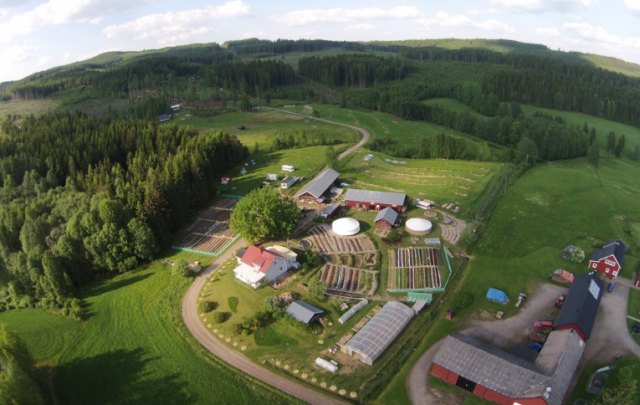Click on the headline (link) for the full text.
Many more articles are available through the Energy Bulletin homepage
Civic problems The SAME around the world
Frances Bula, Vancouver Sun
…The mantra this week at the World Urban Forum is that local governments are the solution. Decentralization is the buzzword from Canada to Kenya.
Yet these mayors and councillors have the fewest financial resources, the thinnest menu of powers, and the lowest bureaucratic expertise of any level of government.
On top of that, they’re not given any real power by central governments.
In the same way B.C. cities tussle with provincial and federal governments over who controls transportation projects or supervised injection sites for drug users, city mayors on every other continent are also being put in the strange situation of having responsibility given to them while the real power stays elsewhere.
Mayors and councillors are the closest to the people, the current conventional wisdom goes. They provide the real services that are going to make the most crucial difference to those flooding into the world’s cities.
Their decisions about how to develop their cities are going to have the most direct impact on the planet’s environment. And they’re never going to get too inflated an idea of their importance because they’re the ones whose offices people head to first to gripe about potholes, garbage and homelessness.
…The forum brought together an unprecedented number of mayors — about 100 of them — and several sessions focused on city governments.
Over and over again, in many of the smaller sessions off the beaten track or in hallway conversations, those mayors talked about two things. The positive side was the innovative projects they were undertaking in their cities. The negative was the contradictory political world they were living in, where everyone was saying that local governments were the key while those local governments continue to struggle with weak financial bases, as central and regional governments keep the majority of tax revenues for themselves.
“Decentralization for us has meant very often the transfer of responsibilities without the transfer of resources,” said Robert Sagna, the mayor of Ziguinchor, Senegal, in a session that brought francophone mayors together Thursday. “We are never going to succeed as long as the central authority is only pretending to decentralize.”
(24 June 2006)
World urban issues at your fingertips
Vancouver Sun
Try Googling the words “sustainable” and “cities” and you’ll get almost 27 million Web pages to choose from.
That’s way too many to be useful, so narrow your search. If you add key words that might interest you — say, “water” and “sanitation” — you can cut the list down to a couple of million. Of course they’ll range from wonky to wacky, or helpful to hopeless, and you’ll still be swamped.
But don’t despair. GUSSE (pronounced “gussy”) can help.
GUSSE, short for Global Urban Sustainability Solutions Exchange, is a Web-accessible database that lets people interested in the kinds of issues discussed at the World Urban Forum access reliable information tailored to the depth and nature of their interests.
It was unveiled during the forum, and presented as a gift to the world from Canada and a couple of departments at the University of B.C.
Elisa Campbell, who runs the university’s design centre for sustainability, was in charge of content, and David Vogt, the director of digital learning products, was responsible for putting the technology together. Both contributed aspects that make GUSSE far more useful than Google for specialized users.
Campbell said a key strength is that it’s a curated database — one vetted by experts to ensure all of its information is reliable. Initially, the content has been vetted by a local panel of advisers, she said, but in future an international board will be set up to take over the task.
(24 June 2006)
The database is available at gusse.org/ .
More about GUSSE from the World Urban Forum.
Big spenders bad for cities
Forget slum dwellers, ‘the problem is Donald Trump’
Doug Ward, Vancouver Sun
A British development planner told the World Urban Forum Friday that the challenge of urbanization isn’t the ever rising number of slum dwellers. “The problem is Donald Trump.” David Satterthwaite told a special session on the future of cities that the consumption patterns of the world’s affluent are the chief threat to cities.
“Donald Trump contributes more to global unsustainability probably than all the slum- dwellers in Mumbai [India], all eight million of them,” said Satterthwaite. “You can fit the entire world urban population into Senegal with the density of Chelsea [a London neighbourhood]. Chelsea is a very nice urban environment.”
Satterthwaite told delegates on the final day of WUF that “the problem isn’t the number of people, the problem is what they choose to consume in their daily lives.” Satterthwaite said the trend in many cities in the developing world is one where “the rich and powerful live, work and play in gated communities where the poor are not allowed to go.”
Satterthwaite’s comments followed a presentation of the UN’s State of the Cities Report, which says that the world’s rapid urbanization has generated greater economic growth but also increased poverty and environmental ruin.
The report “clearly shows that there are two cities within one city,” Inga Bjork-Klevby, assistant secretary-general of UN Habitat, told WUF delegates. “One part with all the benefits of urban living and the other part that live in dehumanizing conditions in slums.”
(24 June 2006)
Interactive Map – Urban Growth
BBC
Denis Frith on EnergyResoures writes:
The BBC has put out a fascinating map showing the growth of urban populations globally, including a projection to 2015. ‘Interactive map: Urban growth’ can be accessed at
news.bbc.co.uk/2/shared/spl/hi/world/06/urbanisation/html/urbanisation.stm
This map illustrates the major problem that global society needs to face up to. There are too many humans. They are consuming too much of the natural resources and services and so devastating our environment and destroying biodiversity. And these people are tending to congregate in urban areas. This has all the characteristics of a cancerous growth. Oil depletion, energy crisis, climate change, manifest poverty, pollution causing health problems, desertfication, devastation of fisheries, aquifer draw down are all manifestations of this problem.
The map shows that this cancer is spreading rapidly from the Western world. Moving the slider to 2015 gives a stark view of what may be ahead. I believe that thinking people will take the view that this growth is unsustainable. The moves to substitute other fuels for gasoline are most unlikely to have a significant impact on the holistic problem.
(June 2006)





